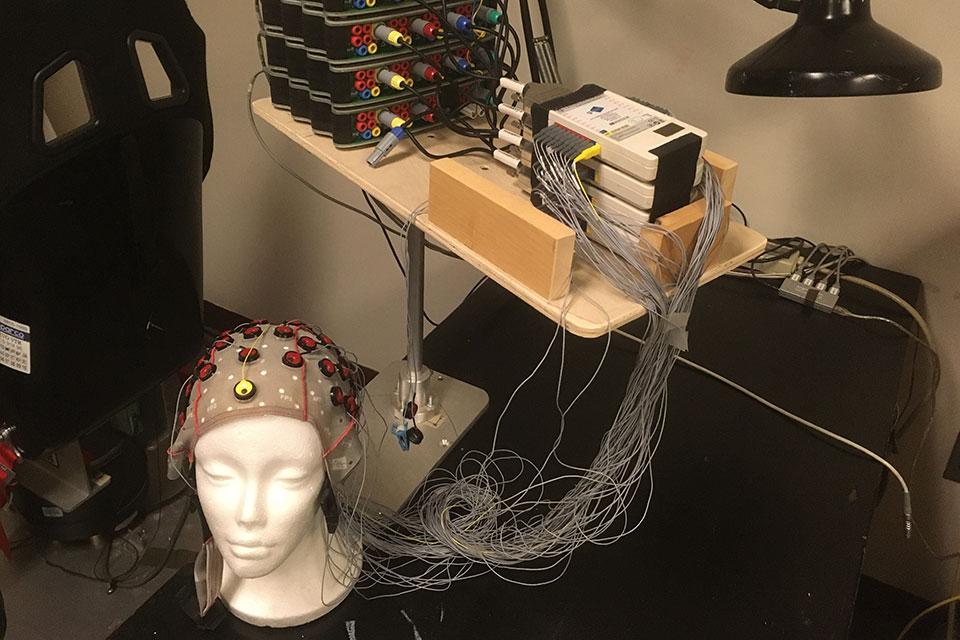Brain Computer Interface

A Brain-Computer Interface (BCI) measures and decodes cortical brain activity that can be used as a communication pathway between a human operator and an external device. The applications range from control of prosthetic limbs, or spelling devices, which can improve the quality of life for patients with disabilities, to assisting operators in decision making tasks.
We have used non-invasive neuroimaging (electro-encephalography, or EEG), to monitor and classify brain activity generated by a subject during real and imagined motor tasks. Our BCI projects have involved remote control of a robotic arm through imagined arm movements, control of a virtual representation of the subject’s hand and navigation of an avatar through virtual scenarios by decoding leg movements.
Brain activity signals are measured with a 64-channel EEG system (g.tec medical engineering, GmbH) and integrated with an array of sensors for additional instrumental measures, including electro-oculography, position tracking, force and pressure monitoring.
Continuing research projects include integrating BCI control based on self-generated turns with other bio-signal based decision aiding tools, for navigation of a remote agent.